20 Weight Loss Myths Debunked by Nutritionists
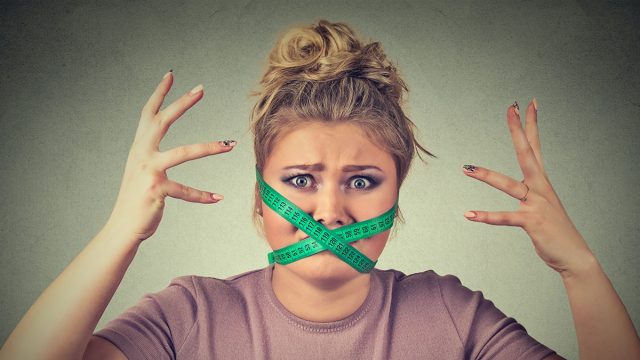
There are so many diets, weight loss strategies, and lifestyle plans being touted by experts, influencers, and weight loss warriors sifting through all the information can be overwhelming and downright confusing. Unfortunately, there are lots of weight loss claims that are downright false, according to nutritionists. Here are 20 weight loss myths debunked by Kimberly Gomer, RDN, MS, LDN, Consumer Health Digest, and Bonnie Taub-Dix, RDN, host of the Media Savvy Podcast, creator of BetterThanDieting.com, and author of Read It Before You Eat It – Taking You from Label to Table.
Myth 1: Exercise Is the Key to Weight Loss
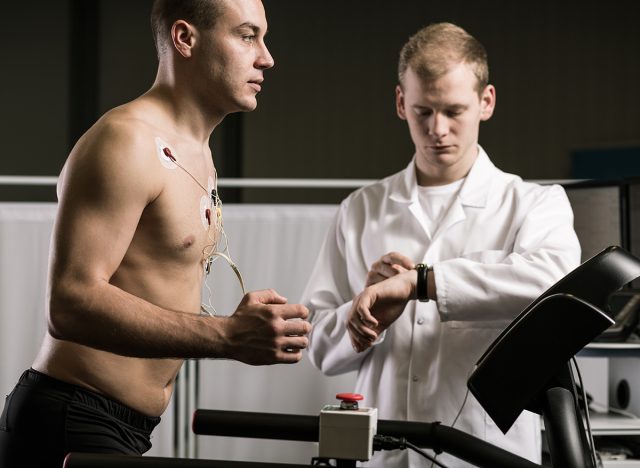
"While exercise is great for heart health and great for mood, the research does not support that it is the magic bullet for weight loss. In fact, the research states that it has an impact on weight maintenance – keeping off those pounds – rather than losing them," explains Gomer.
"I believe that a few things are at play here. For many, exercise can increase hunger because the body is trying to keep homeostasis (all things even), and when calories are burned, appetite hormones can be raised. There is also a psychological component of working out hard, so I deserve to eat a treat."
Myth 2: All That Matters for Weight Loss Is Calories In Vs. Calories Out
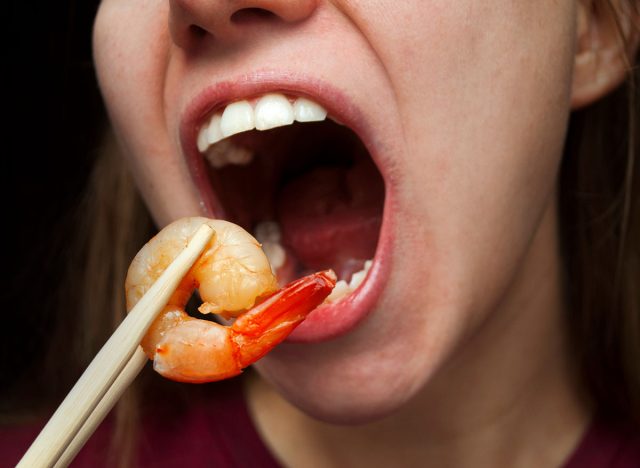
"All that matters for weight loss is Calories In/Calories Out, so to lose weight, eat less and exercise more. It's just a numbers game," is a total myth, says Gomer. "That would be a true statement if we were the bank. This means you make a deposit/you take a withdrawal. You know exactly what those results will be. The difference between a bank and a human is that we are complicated physiological beings. Our bodies do not treat calories as the same units of energy when we eat, and certainly, we don't respond to food in the same way," she says.
Gomer says to think about 100 calories of broccoli, salmon, bread, candy, and orange juice. "Individuals can have extremely different reactions to 100 calories of these foods. Based on those reactions, it will make it easy or impossible to eat a meal that will encourage weight loss. While calories may matter, they are not all going to have the same effect on our weight loss goals," she explains.
Myth 3: My Inability to Lose Weight Is Genetic
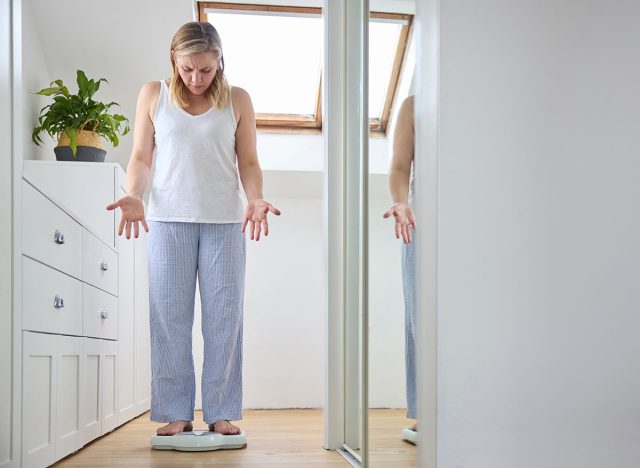
"Everyone in my family is overweight, so my inability to lose weight is genetic," is another myth you shouldn't believe, says Gomer. "While genetics may play a very small role in a person's ability to lose weight, they say that genetics loads the gun – BUT – lifestyle pulls the trigger," she points out.
"This means that a person's lifestyle is the key to their weight loss success – not their parents. Chances are, you were raised accustomed to eating certain foods in a certain way and manner. Those foods we grew up with and how our family used foods on a day-to-day basis (including what foods, when, and how) make more of a case to the eating familial history being repeated into adulthood. If we were given food as a reward or denied as punishment, the habit of using food can stick with us and create weight loss barriers into adulthood."
Myth 4: Moderation Is the Key to Losing Weight
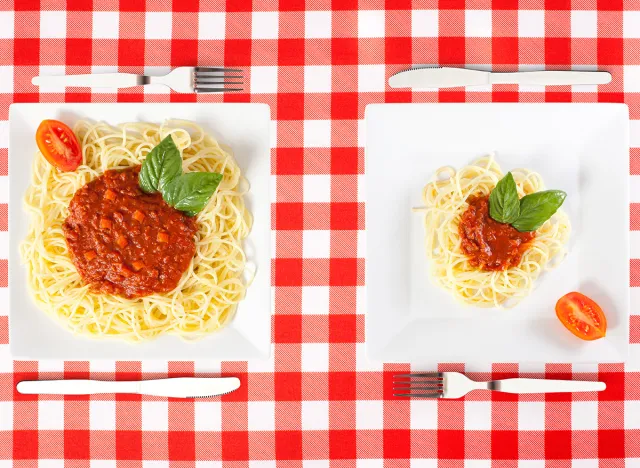
"Moderation is the only way weight loss can work" is simply not true, Gomer maintains. "Moderation almost never works. Before Big Tobacco took control of processed foods in the 1980s, we ate real foods. After Big Tobacco applied the Addiction Business Model to processed foods, millions of people were no longer eating real food. They were eating addictive food-like substances," she said.
Myth 5: Food Isn't Addictive. Just Eat Less
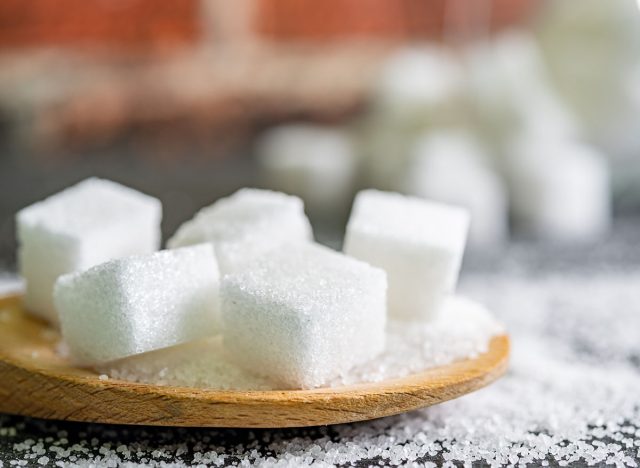
"Food isn't addictive. We need it to live. Just eat less," is another myth that needs to be busted, says Gomer. "Research clearly shows evidence of addictive substances that have been intentionally placed in foods to hijack our brain chemistry. They include sugar, which hits the dopamine response; flour, which hits serotonin; gluten, excessive salt, and dairy, which are opiates; processed fats, which hit the cannabis response; and caffeine, which hits dopamine. All the other additives may also produce addictive responses in our brains," she explains.
Myth 6: Protein Bars, Shakes, Meal Replacements, and Supplements Will Help Me Lose Weight

No, processed, packaged junk foods like protein bars, shakes, meal replacements, and supplements won't help you lose weight. "All these types of foods are processed foods. From 1970 to 1997, a pound of processed foods per person per day, a 37% increase, proved that neuromarketing is effective, and it has led to epidemics of diabetes, obesity, heart disease, stroke, cancer, memory loss, and learning disabilities," she says.
"Protein bars and shakes are marketed as weight loss helpers. They are the opposite. In many cases, they are loaded with sugar, artificial sweeteners, additives, and other addictive substances. We are sold by marketing, but many bars are really dressed-up candy bars."
Myth 7: Eating Fat Will Make Me Fat
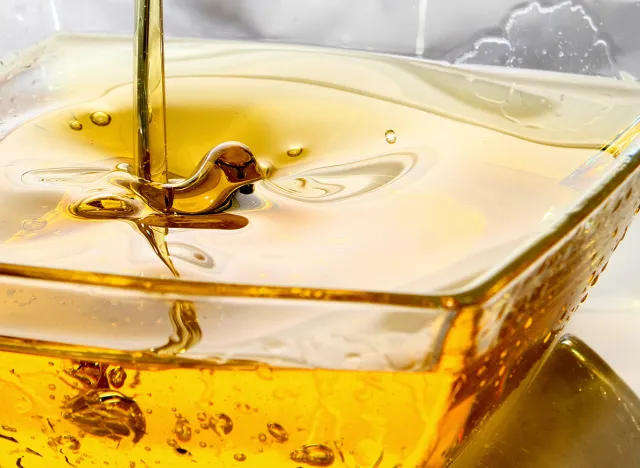
"Fat will make you fat. Avoid all fat when possible" is a rule you should never follow. "Yes, some fats are a real weight loss nightmare. The worst offenders are the highly processed vegetable seed oils, which do, in fact, cause inflammation and poor health outcomes," says Gomer. Fats to avoid?
"Avoid processed vegetable seed oils below as much as possible (at least when cooking at home) because they are horrible for health. These industrial oils raise our omega-6-to-omega-3 fatty acid ratios, which can harm the heart and the gut. These seed oils are unstable, oxidize easily, and contain harmful additives. They are derived from GMOs (Genetically Modified Crops). When these oils are repeatedly heated, even more toxic byproducts are created. They also aggravate the gut by being pro-inflammatory and can be responsible for bloating/gas symptoms. Look at the ingredient list on the package and see if they are lurking there," she says.
RELATED: 12-3-30 Walking Method: 20 Proven Tips to Lose Weight Faster
Myth 8: You Need Willpower to Lose Weight
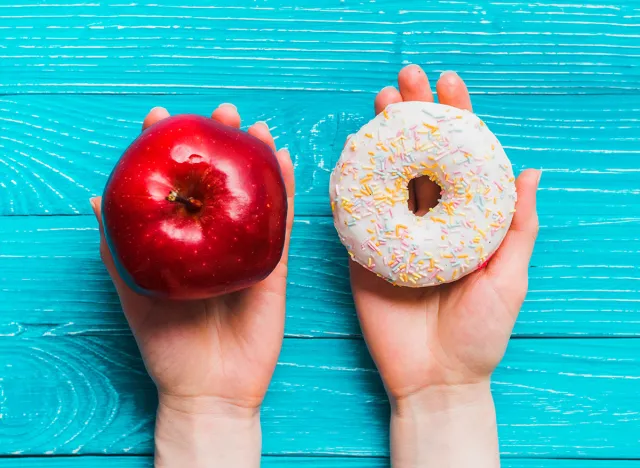
If you are thinking, "All I need is more willpower, and I will lose weight," think again. "The frontal lobe, which has rational thoughts and acts normally, knows when and how to stop or avoid eating unhealthily. However, processed foods produce neuro-stimulation, and the limbic system takes over by stressing and creating an inability to stop rational thinking and then using the food as a drug," says Gomer.
Myth 9: I Need to Try Harder to Lose Weight

And, if you are thinking: "I need to try harder to lose weight. I'm just weak-willed," you should also do a reset. "Food neuromarketing creates powerful stimulation. One of the most powerful stimulations is availability. Constant exposure and availability to highly processed and addictive food at home, at work, while traveling (think rest stops), vending machines, food outlets, and social situations. The barrage of food constantly queues the addictive behaviors that make the frontal lobe unable to cut the brakes and make healthy decisions," Gomer says.
Myth 10: I Can't Lose Weight Because I Eat too Much
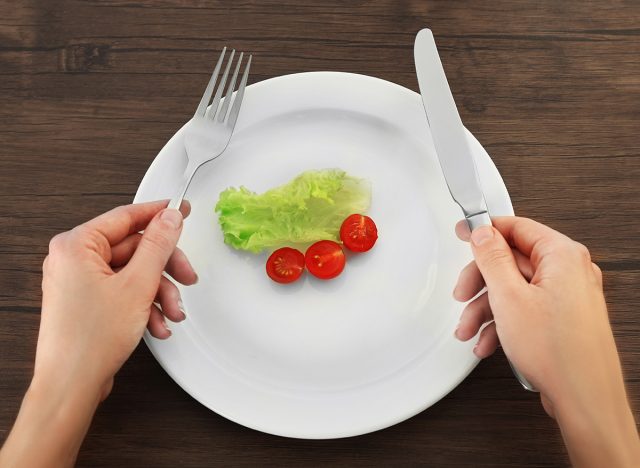
If you think you can't lose weight because you just eat too much, you are wrong. "Overeating is the old paradigm. The new thinking around overeating is food addiction," says Gomer. Instead of defining overeating as a lack of willpower or gluttony, they haven't yet hit rock bottom, exercise, and just figure out your calories in / calories out, and plain self-sabotage, she suggests looking at food addiction for what it is – "we have the wrong diagnosis, dieting is a horrible, destructive mismatch, people need a lot of support (much more than they are currently given), these people have cognitive impairments and kidnapped mirror neurons because of their food addiction," she continues.
"Neuro-marketers stress you to make you crave and buy addictive food. We need to fight back and release the hold on our brains by protecting and restoring our mirror neurons, by not letting stress hit our limbic system, and by keeping our frontal lobe from rational, healthy thought. The shift can be made to take our brain chemistry back and own our hope, control, and behaviors around food, but it needs to be done in a community support system that provides calm and loving energy."
Myth 11: The Scale Is the Best Way to Measure Progress
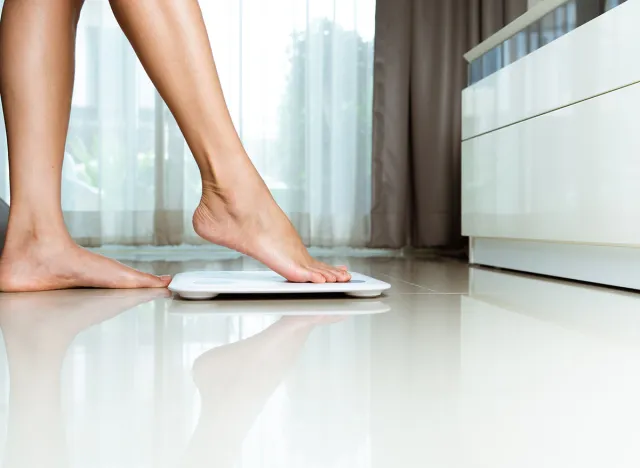
Many people use the scale to measure progress, but it might not be the best way, explains Gomer. "The scale is one measure, but it has its limitations," explains Gomer. "Getting on the scale provides the weight of the moment. That weight includes fat, muscle, and fluid. Many things can influence those numbers – especially the fluid part. So extra exercise – some stress (albeit positive) for the body – can cause the scale to go up a bit. Eating a carb-heavy / salty meal – can also cause a weight shift up. Relying on the scale for real feedback can be very misleading. It's one measure but so are how clothing fits and how a person is feeling to determine if their weight loss is going in the right direction."
RELATED: 15 Quick Ways to Lose Body Fat Percentage in a Week
Myth 12: If I Balance My Hormones, I Will Lose Weight

All I need to lose weight is to balance my hormones. Yes and No. While hormones do play a significant role in weight loss success or struggle, it's not the only factor.
Myth 13: If I Follow Someone Else's Diet and Exercise Routine, I Will Get Their Results

Another myth that you need to know about? "If I follow an influencer or friend's exact diet and exercise routine, I will get their results," she says. "We never know exactly what a person eats day to day or how they exercise. Their genetics, their lifestyle, and their ability to stay consistent may be totally opposite from yours. So don't follow one person's routine – create one for yourself that helps you – and is sustainable for you. Getting help with that plan is awesome – but make sure it's individually crafted for you. Your lifestyle, your health, your challenges, and your goals."
Myth 14: Intermittent Fasting Is the Best Way to Lose Weight
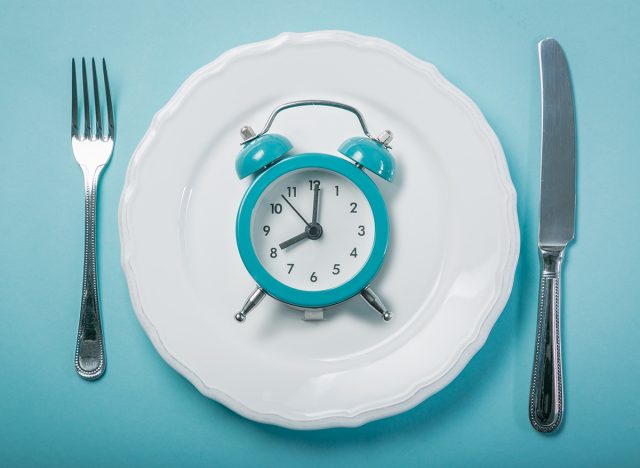
Intermittent Fasting isn't necessarily the best way to lose weight, says Gomer. "While intermittent fasting may be a valuable tool for some, it is a weight loss nightmare for others. I have seen clients naturally adopt an eating window and do well – as happens for them organically – whereas others try to force fasting or struggle with it – and it can lead to very disordered eating. I would say that Intermittent Fasting is not a myth for weight loss success, but I would say that it is not optimal for all," she says.
RELATED: 10 Reasons to Start Walking for Easy Weight Loss
Myth 15: You Have to Eat Less Than 1,200 to Lose Weight
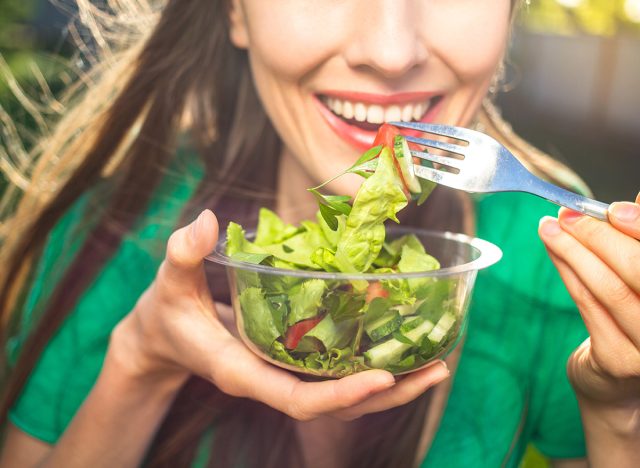
No, you don't have to eat less than 1,200 calories per day to lose weight. "Many of my clients believe that the lower their calorie intake, the better their weight loss results will be. The reality is that the number of calories a person needs to achieve weight loss depends on a variety of factors, including age, height, gender, weight, muscle mass, activity/ exercise levels, sleep, and stress," explains Gomer.
Health issues and any medications can also make a big difference. "A person's metabolic health and metabolic flexibility need to be accounted for. That's why different people can lose very differently on the same caloric intake. All these factors create a different caloric need and goal for weight loss based on the individual, and that number may not be the same day to day." It also depends on what makes up those calories, for example, the nutrition density and what kind of calories they are.
"Are they going to increase insulin or balance hormones? So, always trying to eat less and less and counting calories many times leads to undereating and then overeating in response to the restriction. The answer is less than 1200 calories may work for some, but not most. And if those 1200 calories create restriction/under-eating, then sustainability is impossible, and overeating is around the corner, which is the biggest block for weight loss goals," she adds.
Myth 16: Is Something Is "Free From" It Is Healthy
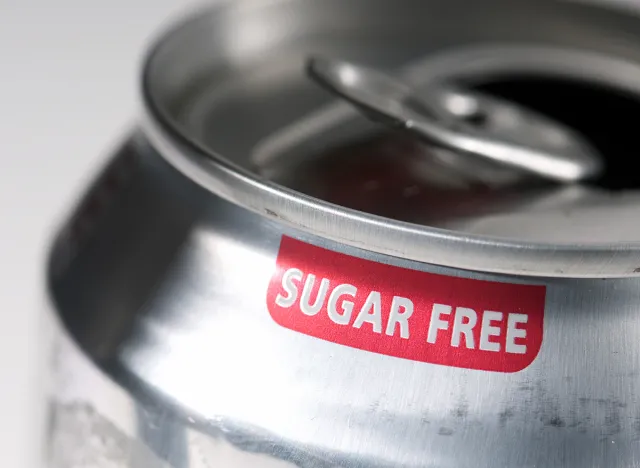
Taub-Dix urges you to be careful of the term "free from" on food labels. "'Free from' is commonly used on the front of product labels to tell you what the food does not contain, but just because an ingredient, like gluten, is eliminated, that product isn't necessarily healthy," she explains. "For example, a food free from gluten could be laden with sugar, salt, additives and preservatives – not what you might consider to be 'free.'"
Myth 17: Don't Eat Foods with Ingredients You Can't Pronounce

We're often told not to eat foods with ingredients we can't pronounce. "As far as pronunciation goes, some ingredients are listed by their chemical name instead of a common name," Taub-Dix points out. "The ascorbic acid that might sound scary is merely the chemical name for vitamin C, a nutrient you might otherwise welcome."
Myth 18: Avoid All Processed Foods
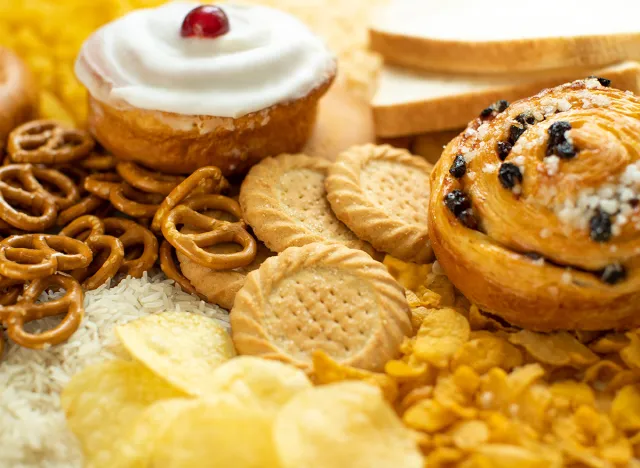
Some people are told not to eat "processed foods," but that advice is "wrought with confusion," according to Taub-Dix. "If you brought a carrot home from the farmer's market and washed it, peeled it, and steamed it…you processed it," she says. Highly processed foods, on the other hand, could contain excessive amounts of calories, fat, sugar, and sodium, and perhaps be void of value. "If you're trying to eat more carefully, choosing foods that are minimally processed is the way to go. Reading food labels can help you make better choices," she adds.
Myth 19: Only Shop the Perimeter of the Store

We're often told to just shop the perimeter of the store, but Taub-Dix points out that this is misinformation. "You should also 'make the most of the middle,'" she says. "This is where you can find whole grains, nuts, beans, and other valuable foods."
RELATED: 15 Amazing Ideas to Start Losing Weight Before Summer
Myth 20: Sugar Is the Only Ingredient You Need to Pay Attention To
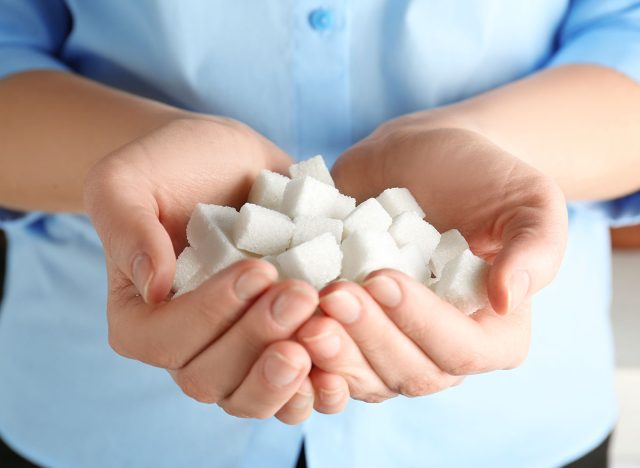
If you are only scanning an ingredient list for the word "sugar," you are going about it all wrong. "Sugar could be the master of disguise. It's important to pay attention to where sugar and its aliases, appear on the ingredient list. The higher to the top, the likelihood of sugar appearing in greater quantities within the food. And remember that just because you're not seeing the word S-U-G-A-R, it doesn't mean your food doesn't contain sugar, as in organic cane juice," says Taub-Dix.
💪🔥Body Booster: Avoid processed vegetable seed oils below as much as possible (at least when cooking at home) because they are horrible for health.




